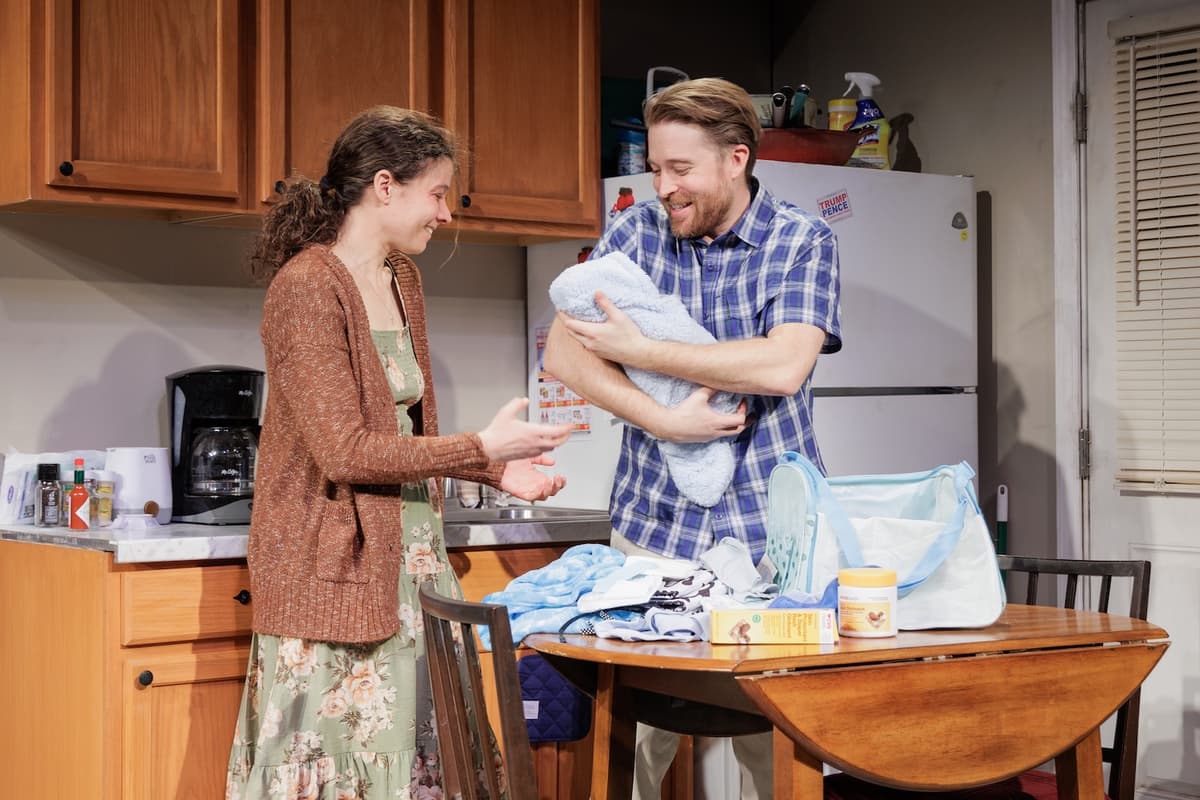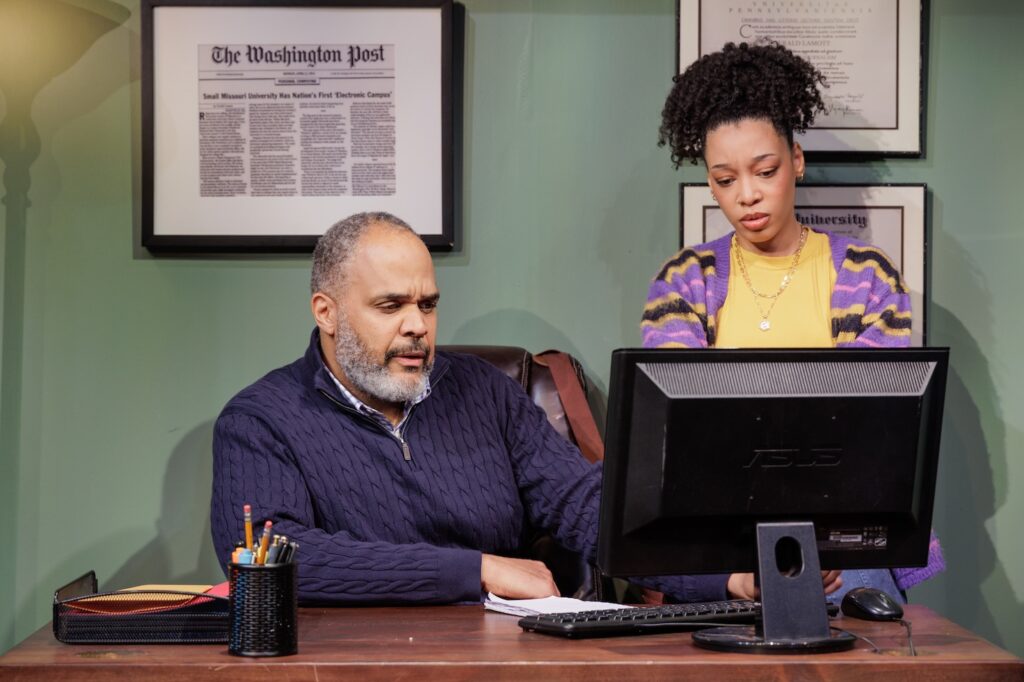Race Relations in Tiny Maryland Town at Center of Playwright Chisa Hutchinson’s Latest, ‘Amerikin’
After one character who wants to join a white supremacist group takes a required ancestry test and gets some surprising results, ‘Amerikin’ traces the fallout, in which four other characters play substantial roles.

While I’m not sure if the tiny town of Sharpsburg, Maryland, has a tourism or public relations department, if so it should be on high alert: That is where a celebrated playwright, Chisa Hutchinson, has set her latest work, “Amerikin,” and her portrait is not flattering, to say the least.
The first citizen we meet in Ms. Hutchinson’s Sharpsburg — after an opening dose of Lindsay Jones’s incidental music, basically a parody of classic Southern rock — is Jeff Browning, a white man in early middle age who never met a sentence he couldn’t mangle grammatically. Jeff is a new father, and he also has a dog; his son and pet are respectively named Hunter and … well, an epithet that rhymes with “bigger.”
Jeff’s buddies, all of them also white, include Cody, whose friends call him Poot, and Dylan, who turns up wearing a T-shirt with “Black Labs Matter” scrawled across the front. In their first scene together, they drink beer, drop F-bombs, and eventually broach the subject of racial purity. Dylan is a member of the World Knights, a white supremacist group — fictional, though inspired by such outfits that have adopted medieval language — and Jeff is interested in joining.
A snag emerges when Jeff takes a required ancestry test and gets some surprising results. “Amerikin” traces the fallout, in which four other characters play substantial roles: two white women, a Black Washington Post reporter, and the reporter’s bright, feisty daughter, an aspiring journalist herself.

Both white women suffer for Jeff’s moral failings. His wife, Michelle, is also struggling with a major case of post-partum depression; Alma, their neighbor, was Jeff’s girlfriend previously and remains devoted to him, while worrying for his baby. As the reporter, Gerald, will note after speaking with her, Alma is “really sweet,” but she’s still pretty much a hayseed; Gerald has to inform her that “it’s not an insult to call a black man black.”
Gerald, in contrast, is worldly and accomplished, but also humble and gentle, clearly both a consummate professional and a doting father. He and his adoring, equally brilliant daughter, Chris, seem to clash on only one subject: how to deal with the abject racism embodied by the residents of Sharpsburg, whose behavior as a mob makes even Jeff and Dylan’s more egregious antics seem mild.
Chris objects to what she perceives as Gerald’s gentle forbearance in the face of such injustice. “You don’t have to play Martin to my Malcolm, do that whole compassionate crusader thing with me,” she tells her dad. “This is not an act, Chris,” he responds. “I firmly believe in the power of understanding. To understand something is to know how it works. And once you know how it works, you have the power to disable it.”
Gerald allows Chris to accompany him on a trip to Sharpsburg to meet Jeff, and some intriguing and disturbing twists ensue, as Ms. Hutchinson cleverly segues back and forth between the interview and flashbacks that uncover holes and flat-out lies in Jeff’s account. Michelle, whose misery is made raw in Molly Carden’s lucid performance, gets a monologue that gives her a bit more depth.
The playwright allows other characters at least a little more nuance as well, not letting us forget that class distinctions are also at play here. We learn that Poot, played by a likeable Tobias Segal, once dated a Black woman, and is ambivalent about the Knights even while recognizing the exalted status the group holds locally and the sense of community it provides. These two factors are a big draw for Jeff, who harbors his own questions but wants to lay a good foundation for Hunter.
Both family and community become increasingly significant in “Amerikin,” and under Jade King Carroll’s sensitive direction, the actors relay the weight they hold for the play’s men and women. Daniel Abeles illustrates the concern and conflict that flicker in Jeff, notwithstanding his ignorance and cowardice, while Andrea Syglowski conveys Alma’s relative courage and patience.
Amber Reauchean Williams’s witty, sometimes fiery Chris adds sparkle to the proceedings, and an immensely appealing Victor Williams (no relation) captures both Gerald’s unfussy dignity and the moments of goofy-dad awkwardness that are his only apparent imperfection, and of course make him all the more endearing.
Even Dylan, the play’s most patently loathsome character — portrayed by Luke Robertson, with just enough cool menace to not detract from the guy’s blockheadedness — seems to defrost the tiniest bit in one scene, after Gerald and Chris shower him with graciousness. In the end, though, the snapshot of race relations offered in “Amerikin” can be Black and white in more ways than one.

